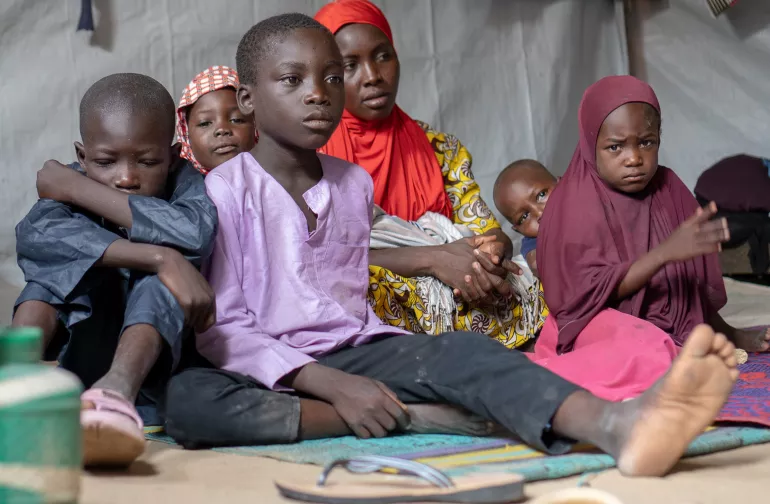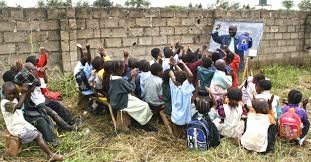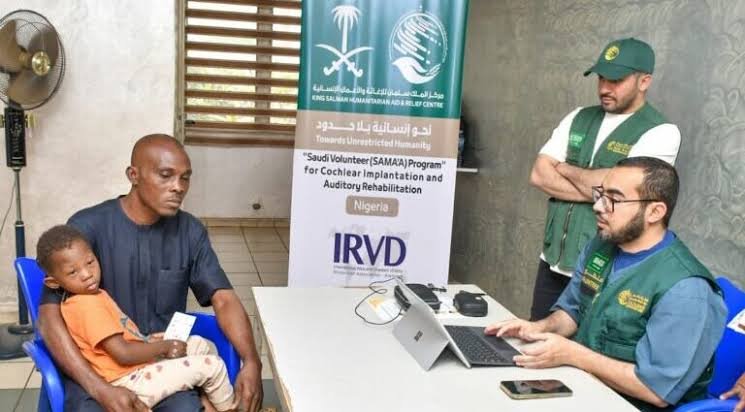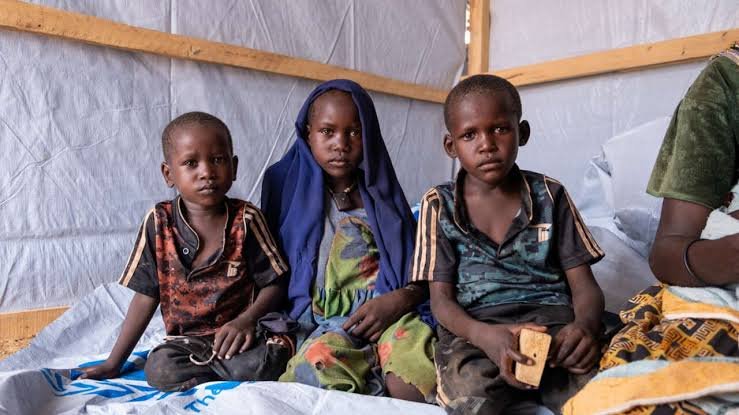The United Nations Children’s Fund (UNICEF) has voiced serious concern over the harsh and uncomfortable living conditions faced by millions of children in Nigeria, warning that issues like Growth, poor health, early marriage, and lack of education continue to threaten the country’s future, hence making life difficult for children.
UNICEF’s Representative in Nigeria, Mrs. Cristian Munduate, issued the warning during the presentation of the agency’s 2024 annual report in Lagos. The event, held at Radisson Blu Anchorage, Victoria Island, was themed Cristian Munduate’s Valedictory: “The Nigerian Child, UNICEF 2024 Annual Report, and the Nigerian Media”, and was organized in collaboration with the Nigerian Guild of Editors and Diamond Awards for Media Excellence (DAME).
Munduate highlighted that Nigeria sees around 8 million births every year, one of the highest globally. However, she stressed that the real concern isn’t just about high birth rates, but about the responsibility of caring for each child.
“It is not just about having babies. It is about assuming responsibility for each one of them, as parents, communities, governments, civil society, private sector, and even the media,” she said.
According to the report, 40% of Nigerian children under five are stunted, a condition that permanently hampers brain development and learning ability. “Stunting before the age of five is irreversible. It limits a child’s intellectual potential for life,” Munduate emphasized.
The report also reveals that despite some achievements, over 1.3 million Nigerian children still have not received any form of vaccination, leaving them vulnerable to diseases that are otherwise preventable. “Zero-dose children continue to die in large numbers because they have not been reached,” she added.
While immunisation campaigns reached 59 million children, much more is needed, especially in hard to reach and conflict affected regions. UNICEF also helped register 10 million children with birth certificates in the past year, an important step toward enabling access to social services. Still, about 40 million Nigerians continue to practice open defecation, creating major public health risks. Only Jigawa State has been certified open defecation free, while Kaduna, Zamfara, and Katsina are close to achieving that goal.
Munduate expressed concern over the increase in child marriage, particularly its impact on girls’ health, education and mental function. She made it clear that when mothers complete primary or secondary school, their children are more likely to stay in school too, rather than dropping out, emphasizing the need to invest in girls’ education.
In 2024, UNICEF reached 2.6 million children, who were out of school. Yet, about 18 million children, 10 million of which falls under primary school age and 8 million within the secondary school age, still remain out of school. The agency has urged increased investment in educational infrastructure and teacher development to address the gap.
On nutrition, nearly one million children suffering from severe acute malnutrition received treatment with therapeutic food, some of which was co-funded by state governments, inorder to help them. But the situation remains critical, with food insecurity on the increase and donor support declining rapidly. “Many of these children already have compromised intellectual capacity and without treatment, they will not survive,” Munduate warned.
UNICEF also provided safe drinking water to 2 million people and sanitation services to over 4.6 million. However, Munduate described these efforts as temporary solutions, calling for more sustainable, community based approaches.
In conflictaffected areas, particularly Borno, Yobe, and Adamawa, the agency worked with local governments to rescue and reintegrate 3,000 children who had been abducted by non-state armed groups. UNICEF also supported 1.5 million children affected by violence, including cases of sexual abuse.In terms of youth empowerment, the agency’s skills development programmes, such as “GenU” and “JoMa”, reached over 630,000 young people, preparing them for employment and civic life.
Munduate also drew attention to the growing impact of climate change on child welfare. From frequent floods to disease outbreaks, she said Nigeria ranks among the most climate vulnerable countries in the world. “But resilience must not mean enduring misery. It must mean being equipped to live a dignified life,” she said.
She called on all sectors, government, media, private sector, religious and traditional leaders, to support structural reforms that will protect and uplift Nigerian children.
Also speaking at the event, Mr. Emeka Izeze, Chairman of the occasion and former Managing Director of The Guardian, urged Nigerian editors and journalists to move beyond political reporting and focus more on human-interest stories, especially those involving vulnerable groups.
“We give more prime of place to politicians and elections nobody trusts than to the tragic and inspirational stories of real people,” Izeze said. “It’s time we start telling the stories of vulnerable women, children, those in IDP camps, those still searching for missing daughters.”
He praised UNICEF’s collaboration with media organisations and suggested such interactions become regular features in editorial discussions nationwide.“If UNICEF can have a standing spot at editors’ conventions to share these stories, it would compel more media attention to critical social issues,” he added, urging editors to be more intentional about covering stories that “appeal to the human soul and spirit.”






